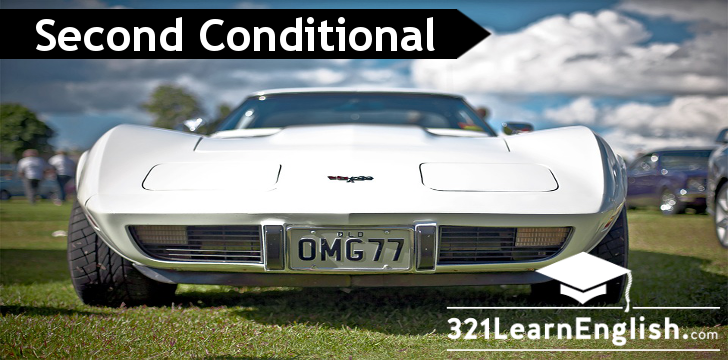
Learn how to form the second conditional in English, which is used to talk about unreal, impossible or improbable situations.
The second conditional (also called conditional type 2) is a structure used for talking about unreal situations in the present or in the future.
Structure
A second conditional sentence consists of two clauses, an “if” clause (condition/hypothesis) and a main clause (result).
• If I knew the answer, I would tell you.
• If I had a million dollars, I would buy a big house.
If the “if” clause comes first, a comma is usually used. If the “if” clause comes second, there is no need for a comma.
• I’d buy a big house if I had a million dollars.
• I’d tell you if I knew the answer.
We use different verb forms in each part of a second conditional. We usually use past simple in the “if” clause (condition/hypothesis) and would + infinitive in the main clause (result).
• If he had the book, he would lend it to me.
We can also use the modal verbs could and might in the main clause.
• If you had wings, you could fly like Peter Pan.
• If he went to London, he might see the Queen.
Use
We use it to talk about something that does not apply to the present and it is not very likely to happen in the future.
• If I were the President of USA, I would legalize marihuana.
• If there were no mosquitoes, there wouldn’t be malaria.
• If I became an astronaut, I would travel into space.
• We would learn a lot from dolphins if they could talk.
We also use it to give advice with the expression “if I were you”.
• If I were you, I would study harder for the exams.
• I would buy that t-shirt if I were you.

















